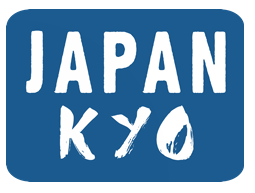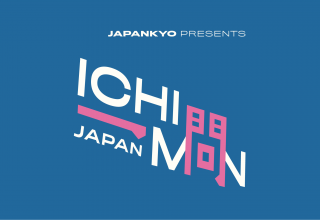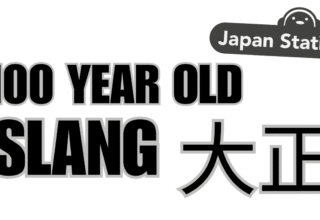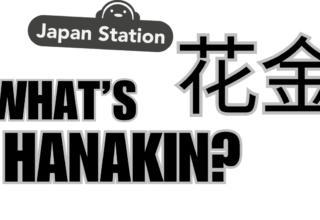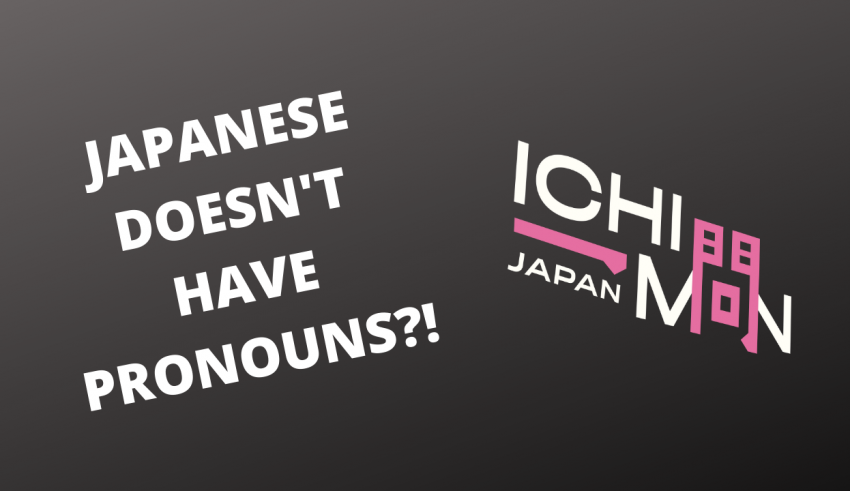
On this episode of Ichimon Japan we ask: What first person pronoun should I use when speaking Japanese?
Topics Discussed
- The most common first person pronouns used in Japanese
- The tendency for Japanese speakers to avoid using pronouns
- The lack of true pronouns in Japanese
- How choosing which first person Japanese pronoun to use can be confusing even for native Japanese speakers
- Whether ore is only used by tough guys in Japanese
- Theories about the history and evolution of the first person Japanese pronoun ore
- Who uses ore
- The concept of direct index vs indirect index
- Whether ore is innately masculine
- What traits people associate with ore
- Whether women use ore
- The evolution and history of boku
- What traits are associated with boku
- Whether women use boku
- About watashi, watakushi, and atashi
- Using honorific language in Japanese as a way to scare or build a psychological wall with the listener
- A traumatic experience stemming from someone’s reluctance to schoose a pronoun
- And much more!
Listen to Ichimon Japan on
Apple Podcasts Google Podcasts Stitcher Spotify iHeartRadio PodBean Tunein RSS
Support on Patreon
If you enjoy Ichimon Japan and want to ensure that we’re able to produce more episodes, then please consider becoming a patron on Patreon.com. You can join for just $1 a month and that comes with perks like early access to episodes, a shout-out at the beginning of a future episode, bonus content, and discounts to Kimito Designs. For $3 a month you get all that plus access to Japanese Plus Alpha, a podcast produced by me (Tony Vega) that focuses on the Japanese language and its many quirks. Whether you are studying Japanese or just enjoy learning about language and linguistics, you’ll enjoy Japanese Plus Alpha.
And it goes without saying that if you sign up, you’ll also get my undying gratitude. Thanks in advance!
Sources, Links, Videos, Etc.
To learn more about Shoe Murakami, check out episode 45 of Japan Station.
You can find Shoe Murakami on the following platforms.
Here are some of the main English-language sources used while doing the research for this episode.
- Japanese Pronoun Adventure: a Japanese Language Learner’s Exploration of His Japanese Gender Pronoun
- This is the article that is about the individual who created an original kanji (that they would later discover existed in Chinese) in order to use it as the written form of their preferred first person pronoun.
- An ‘I’ for an ‘I’ The semantic development of the first person pronoun in Japanese
Here are some of the main Japanese-language sources used when doing the research for this episode.
- 「私」「俺」「僕」どれ使う?/Which Should You Use “私”, “俺” or “僕”?
- 一人称は僕、オレ、私? 彼が何を使うかで距離感がわかるかも
- 彼氏の一人称が「ワシ」! 彼女になったらどうする?https://mdpr.jp/column/detail/2347950
- 「わたし」「うち」「わい」どれがNG?男性に「女性の一人称」の本音を聞いてみた
- 江戸時代は男女の言葉に差がなかった!?
Here is the Tofugu.com article about Japanese first person pronouns that is mentioned in this episode.
This is the Japanese video mentioned during the episode in which someone interviews Japanese women about what pronoun they would prefer their boyfriend to use. In it the respondents describe what traits they associate with the pronouns boku and ore.
Don’t forget to check out the latest episode of Japan Station.
To pick up a t-shirt and support the show, check out KimotoDesigns.com
Japanese Vocabulary List
Most episodes feature at least one or two interesting Japanese words or phrases. Here’s some of the ones that came up on this episode. All information is from Jim Breen’s WWWJDIC.
- Ore
- 俺 : 俺(P); 己 【おれ(P); おらあ(俺)(ok); おり(俺)(ok)】 (pn) (male) (rough or arrogant) I; me
- Boku
- 僕 【ぼく】 (pn) (1) (male) I; me; (pn) (2) (when addressing young boys) you; (pn) (3) (See しもべ) manservant
- Watashi/Watakushi/Atashi
- 私 【あたし(P); あたくし; あたい; あて】 (pn) (fem) (uk) I; me; (P); 【わたし】 ; (pn) (slightly formal or feminine) I; me; (P); : 妾; 私 【わらわ】 ; (pn) (arch) (hum) (fem) I; me; : 儂; 私 【わし】 ; (pn) (uk) (male) (used by elderly) I; me; 【あっし; わっし】 ; (pn) (mainly used by working men) I; me; 【し】 ; (n) (See 公・こう・1) private affairs; personal matter; 【わい; わて】 ; (pn) (1) (arch) (ksb:) I; me; (pn) (2) (わい only) (used toward people of equal or lower status) you; 【わたい】 ; (pn) (arch) (ktb:) I; me; 【わたくし】 ; (pn) (1) (usu. more formal than わたし) (See 私・わたし) I; me; (adj-no,n) (2) (ant: 公・おおやけ・2) personal (affairs, etc.); private; (n) (3) selfishness; partiality; (n) (4) secrecy; confidentiality; 【わっち】 ; (pn) (used esp. by people of low status) I; me
- Chūboku
- 忠僕 【ちゅうぼく】 (n) faithful servant
- Nōto
- ノート (n) (1) (abbr) (See ノートブック) notebook; copy-book; exercise book
We Want Your Questions
Is there something about Japan that confuses you? Is there something about Japanese culture that you would like to learn more about? Is there something in Japanese history that you would like us to explain? We’re always looking for new questions about Japan to answer, so if you have one, please send it to ichimon@japankyo.com.
Special Thanks
Opening/Closing Theme: Produced by Apol (YouTube, Twitter, Facebook, Fiverr)
Ichimon Japan cover art: Produced by Erik R.
Follow Japankyo on Social Media
Full Show Notes
